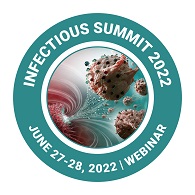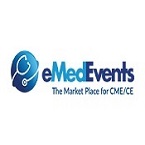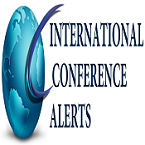Sessions / Tracks
Track -1: Scope of Infectious Diseases
Infectious disease emerged as a specialty in the late century after significant developments had been made in the field of antibiotic treatments to treat life-threatening contagious, postoperative, and trauma-related infections. Especially during the years after World War II, the industrialized world benefited from the development of chemotherapeutic agents, the extension of public health practices, and profound discoveries in the field of microbiology and immunology, all of which led to significant diminish in the incidence of mortality and morbidity due to infectious processes.
Related: Infectious Conferences | Microbiology Meetings | Bacteriology Congress | List Of Japan Microbiology Conferences | Microbiology Events | List Microbes Conferences
Associations: International Societies of Diseases | List of Medical Associations | UAE Rare Disease Society| List of European Conferences
Track -2: Bacterial Infections
The global problem of infectious and deadly diseases caused by bacteria are presently major scientific and medical issues. Bacterial infections have a large impact on public health. As a general rule, bacterial infections are easier to treat than viral infections, since we have an extensive army of antimicrobial agents with activity against bacteria. Bacterial resistance to antimicrobials is a rapidly growing problem with potentially devastating consequences.
The most deadly bacterial disease contracted by human beings is mycobacterium tuberculosis, the world's leading infectious disease with more than 1,700,000 deaths per year. As much as 13% of cases are resistant to most antibiotics, and about 6% are resistant or unresponsive to essentially all treatment
-
Antibiotics
-
Botulism
-
C. diff Infections
-
Campylobacter Infections
-
Cellulitis
-
Chlamydia Infections
-
E. coli Infections
-
Haemophilus Infections
Related: List of Microbiology Meetings | Bacteriology Congress | List American of Microbiology Events | Microbiology Events | Applied Microbes Conferences
Associations: Royal Health Awareness Society | International Society for Infectious Diseases |Infectious Diseases and Clinical Microbiology Specialty Society of Turkey | Bulgarian Association for Prevention and Infection Control
Track -3: Gynaecological Bacterial Infections
Gynecological bacterial infections are prevalent in our domain and as a result pose a number of physical, social and psychological effects. These infections are acquired through several ways. Treating GBIs is a daunting task making its control the most important strategy to alleviating its physical and psychopathology significance.
Related: Bacteriology Conferences 2022 | Microbiology Meetings | Bacteriology Congress | List of Japan Pathology Meetings | Microbiology Events | Applied Microbes Conferences
Associations: International Society of Antimicrobial Chemotherapy| Emirates Medical Association | UAE Rare Disease Society| Emirates Neurology Society
Track -4 Bacterial Oncogenesis
The most important diseases of concern to the medical community are cancer which arises from microbial origin. Microbial infection was found to cause 25% of all human tumours in which viral infection by oncogenic viruses constitutes the most tumours that develop from microbial origin. On the other hand, the role of bacteria in Oncogenesis has been largely neglected for this reason; the current review was established to discuss the role of bacteria in the cancer incidence with particular emphasis on the mechanisms of bacterial carcinogenesis, most studies solely attribute bacterial carcinogenesis to host inflammatory response without discussing the role of bacterial factors in carcinogenesis in which many bacteria can exploit their host in various phases during their infection cycle with subsequent cell defects that affect cellular integrity and normal cellular functions resulting in cancer.
Related: Bacteriology Conferences 2022 | Microbiology Meetings | Bacteriology Congress | List of Japan Pathology Meetings | Microbiology Events | Applied Microbes Conferences
Associations: International Society of Antimicrobial Chemotherapy| Emirates Medical Association |UAE Rare Disease Society| Emirates Neurology Society| Albanian Society of Infectious Disease | Danish Infectious Disease Society | Swedish Society of Clinical Microbiology (FKM) | French Infectious Disease Society
Track -5: Parasitic Infections
Parasites are organisms that live in (or on) another organism, called the host. The parasites can be microscopic or large enough to see with the naked eye, and they survive by feeding from the host. They can also spread parasitic infections, which can lead to sepsis. Sometimes incorrectly called blood poisoning, sepsis is the body’s often deadly response to infection. Sepsis kills and disables millions and requires early suspicion and rapid treatment for survival
Related: Microbiology Meetings 2022 | Bacteriology Congress | List of Japan Microbiology Meetings| Microbiology Events | Infectious diseases Conferences
Associations: Albanian Society of Infectious Disease |Danish Infectious Disease Society | Swedish Society of Clinical Microbiology (FKM) |French Infectious Disease Society
Track -6: Plant Pathogensis
Plant pathogens are forming a huge problem on the economic and life stability. The plant pathogens are increasing in the wide world. The plant pathogens comprise viruses, bacteria, fungi, nematode, and parasitic plant. The plant pathogens cause the diseases for leaf, stem, root, vascular system and fruit. The plant pathogen attacks the plant by using some mechanisms that are responsible for increasing the disease and appearance the symptoms The success in the interaction between plant and plant pathogens is causing a full infection that called a compatible interaction.
Related: Infectious Meetings | Bacteriology Congress | Microbiology Events | Applied Microbiology Events | Infectious diseases Conferences 2022 | Infectious Diseases Societies
Associations: German Society of Infectious Diseases |Scottish Microbiology Association |Infection Prevention Society |Swedish Society of Infectious Diseases
Track -7: Veterinary Pathogenesis
Anatomical pathology is concerned with the diagnosis of disease based on the gross examination, microscopic, and molecular examination of organs, tissues, and whole bodies . Veterinary Pathologist certification exam consists of four parts - gross pathology, microscopic pathology, veterinary pathology, and general pathology. Only the general pathology section is shared between the anatomic and clinical pathology examinations.
Related: Microbiology Meetings | Bacteriology Congress | Applied Microbes | Applied Microbes Conferences | Infectious Diseases Societies
Associations: Nordic Society of Clinical Microbiology and Infectious Diseases | European Society for Clinical Virology (ESCV)|Turkish Society of Clinical Microbiology Infectious Diseases (KLIMIK)|French Society of Microbiology (SFM)
Track -8: Viral Infections
Viral infections are among the most common afflictions of man. It has been estimated that children experience two to seven respiratory infections each year. Viruses cause familiar infectious diseases such as the common cold, flu and warts. They also cause severe illnesses such as HIV/AIDS, Ebola, influenza and COVID-19.Viral infections occur due to infection with a virus.
Related: Bacteriology Meetings | Bacteriology Congress | Applied Microbes | Applied Microbiology Events | Infectious diseases Conferences 2022| Infectious Diseases Societies
Associations: German Society of Infectious Diseases |Scottish Microbiology Association |Infection Prevention Society |Swedish Society of Infectious Diseases
Track -9: Fungal Infections
Fungi are microorganisms characterized by a substance in their cell walls called chitin. Some fungi, like many types of mushrooms, are edible. Other types of fungi, like aspergillus, can be extremely dangerous and lead to life-threatening diseases. Several of fungi can cause fungal infections. In some cases, fungi that aren’t typically found on or inside your body can colonize it and cause an infection. In some cases, fungi that are normally present on or inside your body can multiply out of control and cause an infection.
Related: Microbiology Meetings | Bacteriology Congress | Applied Microbes | Microbiology Events 2021 | Applied Microbes Conferences 2022
Associations: Nordic Society of Clinical Microbiology and Infectious Diseases | European Society for Clinical Virology (ESCV)|Turkish Society of Clinical Microbiology Infectious Diseases (KLIMIK)| French Society of Microbiology (SFM)
Track -10: Blood Stream Infections
Blood stream infections are infectious diseases defined by the presence of viable bacterial or fungal microorganisms in the bloodstream, later demonstrated by the positivity of one or more blood cultures. Those elicit or have elicited an inflammatory response characterized by the alteration of clinical, laboratory and hemodynamic parameters.
Related: Japan Microbiology Meetings | Bacteriology Congress | Applied Microbes | Microbiology Events 2021 |List of Microbiology Conferences 2022
Associations: Nordic Society of Clinical Microbiology and Infectious Diseases | European Society for Clinical Virology (ESCV)|Turkish Society of Clinical Microbiology Infectious Diseases (KLIMIK)| French Society of Microbiology (SFM)
Track -11: Neuro Infections
Neurological infections encompass a large variety of conditions that invade and affect the nervous system. Despite advances in therapy and the development of early detection techniques, many of these conditions can cause severe, chronic and even life threatening problems for those affected by them. The rising number of people infected with HIV/AIDS who are susceptible to neurological infection due to impaired immunity.
Related: Bacteriology Conferences 2022 | Microbiology Meetings | Bacteriology Congress | Applied Microbes | Microbiology Events | Applied Microbes Conferences
Associations: Royal Health Awareness Society | International Society for Infectious Diseases | Infectious Diseases and Clinical Microbiology Specialty Society of Turkey | Emirates Neurology Society
Track -12: Clinical Infectious Diseases
Clinical Infectious diseases are caused by microorganisms like fungi, bacteria, viruses and even parasites. They are contagious and transmitted by insects, animals and by taking contaminated food and water. These infectious diseases are clinically diagnosed by laboratory tests such as blood tests, urine tests, lumbar puncture, throat swabs, computerised tomography, magnetic resonance imaging and biopsies studies.
Related: Infectious Conferences | Pathology Meetings 2022 | Bacteriology Congress | Applied Microbes Congress | Microbiology Events | Applied Microbes Conferences
Associations: French Infectious Disease Society |German Society of Infectious Diseases | Scottish Microbiology Association |Infection Prevention Society
Track -13: Food Pathology
Foodborne illness, also called foodborne disease, any sickness that is caused by the consumption of foods or beverages that are contaminated with certain infectious or non-infectious agents. Most cases of foodborne illness are caused by agents such as bacteria, viruses, or parasites. Other agents include mycotoxins (fungal toxins), marine bio-toxins, and the toxins occurring in poisonous mushrooms; metals such as lead, mercury, and cadmium, which may contaminate food through air, water, or soil pollution; organic pollutants, such as dioxin and polychlorinated biphenyls (PCBs), which are by-products of some industrial processes; and prions (abnormal forms of normally harmless proteins).
Related: Bacteriology Conferences | Microbiology Meetings 2022 | Bacteriology Congress | Applied Microbes | Microbiology Events | Applied Microbes Conferences
Associations: Royal Health Awareness Society | International Society for Infectious Diseases | Infectious Diseases and Clinical Microbiology Specialty Society of Turkey | Emirates Neurology Society
Track -14: Molecular and Cellular Pathogenesis
Host-pathogen interactions at the level of cellular and molecular networks with application to the understanding of virulence factors, host resistance to pathogens, and emerging infectious disease agents. An important new area is the study of the characterization of microbial communities in infectious disease situations.
Related: Bacteriology Conferences | Microbiology Meetings | Bacteriology Congress | Applied Microbes Congress | Microbiology Events | Applied Microbes Conferences
Associations: French Infectious Disease Society |German Society of Infectious Diseases | Scottish Microbiology Association | Infection Prevention Society
Track -15: Epidemiological Modelling
The global outbreak of diseases and the possibility of severe social and economic costs worldwide require immediate action on suppression measures. In order to evaluate the efficacy of past and future policy measures to fight and contain the spread of diseases, a robust and quantifiable analysis system is required. We propose a methodology for forecasting the spread of novel diseases and show how to estimate latent infection rates, accounting for high uncertainty in observation and model specification, which is done by combining real-time Bayesian updating with epidemiological models.
Related: Bacteriology Conferences | Microbiology Meetings | Bacteriology Congress | Applied Microbes Congress | Microbiology Events | Applied Microbes Conferences
Associations: French Society of Microbiology| Albanian Society of Infectious Disease | Danish Infectious Disease Society |Swedish Society of Clinical Microbiology | French Infectious Disease Society
Track -16: Oral Diseases
In most low and middle-income countries, with increasing urbanization and changes in living conditions, the prevalence of oral diseases continues to increase. This is primarily due to inadequate exposure to fluoride (in the water supply and oral hygiene products such as toothpaste) and poor access to oral health care services in the community. Marketing of food and beverages high in sugar, as well as tobacco and alcohol, has led to a growing consumption of products that contribute to oral health conditions and other non-communicable diseases.
Related: Bacteriology Conferences | Microbiology Meetings | Bacteriology Congress | Applied Microbes Congress | Microbiology Events | Applied Microbes Conferences
Associations: International Societies of Diseases | List of Medical Associations |UAE Rare Disease Society| List of European Conferences 2022
Track -17: Metabolism of Pathogens
Pathogenic microorganisms exploit host metabolism for sustained survival by rewiring its metabolic interactions. Therefore, several metabolic changes are induced in both pathogen and host cells in the course of infection. A systems-based approach to elucidate those changes includes the integrative use of genome-scale metabolic networks and molecular data, with the overall goal of better characterizing infection mechanisms for novel treatment strategies.
-
Genomic Interactions
-
Enzymatic Actions
-
Host–pathogen interaction
Related: List of Infectious Conferences | Microbiology Meetings | Bacteriology Congress | List Of Japan Microbiology Conferences | Microbiology Events | List Microbes Conferences
Associations: International Societies of Diseases | List of Medical Associations | UAE Rare Disease Society| List of Japan Conferences
Track -18: Infection Transmissions
Infectious diseases are transmitted from person to person by direct or indirect contact. Certain types of viruses, bacteria, parasites, and fungi can all cause infectious disease. Malaria, measles, and respiratory illnesses are examples of infectious diseases. Simple preventative measures, such as frequent hand washing, can cut down on disease transmission.
Related: Bacteriology Conferences | Microbiology Meetings | List of Bacteriology Congress | List Of Japan Microbiology Conferences | Microbiology Events | List Microbes Conferences
Associations: International Societies of Diseases | List of Medical Associations | UAE Rare Disease Society| List of European Conferences 2022
Track -19: Impact of Vaccines
The COVID-19 pandemic has assist in a new era for vaccines and immunization, reminding the world of the power of vaccines to bring us closer to a safe and healthy future. To maximize the lifesaving impact of immunization over the next decade, ambitious global strategy that envisions a world where everyone, everywhere, at every age fully benefits from vaccines for good health and well-being.
Related: Infectious Conferences | Microbiology Meetings | Bacteriology Congress | List of Japan Microbiology Conferences | Microbiology Events | List of Microbes Conferences
Associations: International Societies of Diseases | List of Medical Associations | UAE Rare Disease Society| List of Japan Associations
Track -20: Antimicrobial Agents
The antibiotics are a broad chemical class of therapeutic agents originally derived from natural sources like fungi and good bacteria. Antibiotics are the chemical warfare molecules manufactured for survival on the unicellular scale of battle and have been adapted for use by man to fend off his own most efficient unicellular predators and those of his livestock.
Related: Infectious Conferences | Microbiology Meetings | List of Bacteriology Congress | List Of Japan Microbiology Conferences | Microbiology Events | List Microbes Conferences
Associations: International Societies of Diseases | List of Medical Associations | UAE Rare Disease Society| List of Japan Associations
Track -21: Immunity
The immune system refers to a collection of cells and proteins that function to protect the skin, respiratory passages, intestinal tract and other areas from foreign antigens, such as microbes such as bacteria, fungi, and parasites, viruses, cancer cells, and toxins. The immune system can be simplistically viewed as having two “lines of defence”: innate immunity and adaptive immunity.
Related: List of Infectious Conferences | Microbiology Meetings | List of Bacteriology Congress | List of UK Microbiology Conferences | Microbiology Events | List Pathology Conferences
Associations: International Societies of Diseases | List of Medical Associations | UAE Rare Disease Society| List of Japan Associations
Track -22: Case Challenges of Infection
A case report is a detailed report of the symptoms, signs, diagnosis, treatment, and follow-up of an individual patient. Case reports usually describe an unusual or novel occurrence and as such, remain one of the cornerstones of medical progress and provide many new ideas in medicine. The case report is a rapid short communication between busy clinicians who may not have time or resources to conduct large scale research.
Related: Infectious Conferences | Microbiology Meetings | List of Bacteriology Congress | List Of Japan Microbiology Conferences | Microbiology Events | List Microbes Conferences
Associations: International Societies of Diseases | List of Medical Associations | UAE Rare Disease Society| List of Japan Associations
Track -23: Drug Therapies
Drug therapy involves the administration of drugs to treat or prevent disease. It is used to treat a variety of illnesses and diseases ranging from psychiatric illnesses to the treatment of cancer. This type of therapy is also referred to as pharmacotherapy. Types of Therapy involves: Radiation Therapy Immunotherapy, Vaccine Therapy, etc.
Related: List of UK Conferences | Microbiology Meetings | Bacteriology Congress | List Of Japan Microbiology Conferences | Microbiology Events | List UK Microbes Conferences
Associations: French Infectious Disease Society | German Society of Infectious Diseases | Scottish Microbiology Association | Infection Prevention Society
Track -24: Good Personal Hygiene
Good personal hygiene is one of the best ways to protect you from getting gastro or infectious diseases such as COVID-19, colds and flu. Washing your hands with soap removes germs that can make you ill. Maintaining good personal hygiene will also help prevent you from spreading diseases to other people.
Personal hygiene includes:
-
cleaning your body every day
-
washing your hands with soap after going to the toilet
-
brushing your teeth twice a day
-
covering your mouth and nose with a tissue (or your sleeve) when sneezing or coughing
-
washing your hands after handling pets and other animals
Related: Pathology Conferences | List of Microbiology Meetings | Bacteriology Congress | Applied Microbiology Congress | Microbiology Events | List of UK Microbes Conferences
Associations: French Infectious Disease Society | German Society of Infectious Diseases | Scottish Microbiology Association | Infection Prevention Society
Track -25: Prevention of Infectious Diseases
Vaccines are available to prevent many common infectious diseases, including hepatitis, diphtheria, influenza and herpes zoster. The CDC has updated recommendations for vaccinations for children, adolescents and adults. There are new platforms for delivery of vaccinations and research on new pathogens. It is also important to consult with a travel clinic prior to travel overseas to be sure you are protected.
Related: Pathology Conferences | List of Microbiology Meetings | Bacteriology Congress | List of Microbiology Congress | Microbiology Events | List of Australian Bacteriology Conferences| List of UK Pathology Conferences
Associations: French Infectious Disease Society | German Society of Infectious Diseases | UK Microbiology Association |London Infectious Societies
Marketing Analysis
The world now has to come to terms with a worrying increase in the prevalence of infectious diseases. Responsible for more than 64% of all deaths, they are by far the world's biggest killers. If nothing is done to curb this trend, the number of deaths from infectious diseases could rise by 18% over the Upcoming years.
According to the Organisation, millions of lives could be saved and healthcare expenditure considerably reduced by national campaigns.
Diseases Therapeutics is estimated to increase at a CAGR of 4.1% globally. The top eight markets to grow are of Germany, France, Italy, Spain, Japan, UK and USA. InfectiousDiseases became a serious health concern. During 2019 to now , adults (50%), or about 84 million people, were Infected. Infectious is the most common cause of Unhealthiest. Millions of people are suffering from Infections , more than 23 million says they have trouble with unhygiene areas. One other way Europe Autoimmune disease therapeutics market is projected to create up to USD 4.58 billion at a CAGR of 1.6% by 2020 control and prevent diseases. However, the global autoimmune diseases treatment market is estimated to reach $15.97 billion by 2022 at CAGR of 3.80%.
Summary:
Diagnostic Market Research on Infectious Diseases
Large proportion of healthcare-associated infections is avoidable, healthcare workers do not always practice evidence-based preventive strategies.Marketing technologies might help to improve patient safety. This article presents the basic principles of marketing and its potential use to promote good infection control practices. The marketing mix (Product, Price, Place, and Promotion) should be taken into account to induce behaviour change. By placing the emphasis on the perceived "profits" for healthcare workers the approach might lose its moral aspect and gain in effectiveness. VigiGerme, a non-commercial registered trademark, applies social marketing techniques to infection control and prevention.
Scope
In the new bio-economy, Infectious diseases play a very important role in constituting major global challenges, upgrading waste streams to valuable food ingredients, counteracting life-style diseases and antibiotic resistance through the gut biota, making crop plants more resistance to utmost climatic substitute conditions, and functioning as host for the production of new biological drugs for treatments of diseases.
Infectious Diseases Associations & Societies around the Globe:
-
International Society of Antimicrobial Chemotherapy (ISAC)
-
Emirates Medical Association (EMA)
-
UAE Rare Disease Society
-
Emirates Neurology Society
-
Royal Health Awareness Society
-
International Society for Infectious Diseases
-
Infectious Diseases and Clinical Microbiology Specialty Society of Turkey
-
Bulgarian Association for Prevention and Infection Control
-
Nordic Society of Clinical Microbiology and Infectious Diseases (NSCMID)
-
European Society for Clinical Virology (ESCV)
-
Turkish Society of Clinical Microbiology Infectious Diseases (KLIMIK)
-
French Society of Microbiology (SFM)
-
Albanian Society of Infectious Disease (SHSHI)
-
Danish Infectious Disease Society
-
Swedish Society of Clinical Microbiology (FKM)
-
French Infectious Disease Society (SPILF)
-
German Society of Infectious Diseases (DGI)
-
Scottish Microbiology Association (SMA)
-
Infection Prevention Society (IPS)
-
Swedish Society of Infectious Diseases
Major Universities related to Infectious Diseases around the World
-
University of Cambridge
-
Kings College of London
-
London School of Hygiene and Tropical Medicine
-
Imperial College London
-
UCL Institute of Epidemiology and Healthcare
-
Pediatric Infectious Diseases Society
-
University of Sheffield
-
University of Maryland
-
Swedish Institute for Infectious Disease Control
-
Columbia University
-
University of Gothenburg
-
Oslo University
-
University of Otago
-
University of Pittsburgh
-
Emory Health Sciences
-
Uppsala University
-
University of Liverpool



















